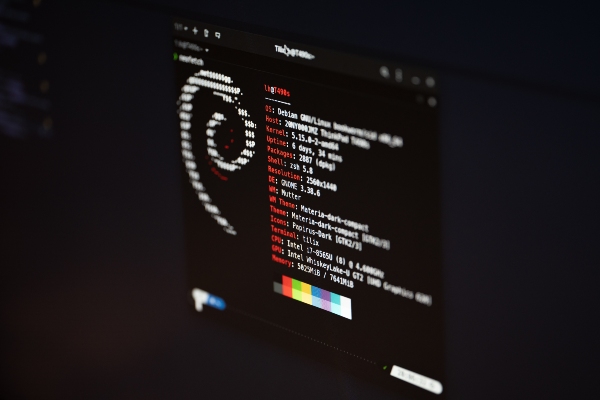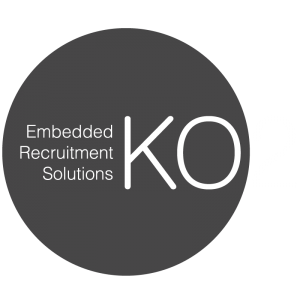Whilst a large majority of the population would only think of Windows and iOS when asked to name popular operating systems, those with more IT experience would also likely suggest Linux. Beginning its life as a student project to create a free operating system kernel, this kernel grew to be supported by a range of different open-source operating systems that are now used around the world and favoured by the developer and programmer communities in particular.
Using Linux as your operating system comes with a range of benefits that may suit individual programmers or entire professional departments looking to customise their experience and enjoy the freedom that comes with installing an open-source system. But before you consider using Linux for your next programming project, it’s important to understand the advantages and disadvantages of the OS and whether you’ll be able to get everything you need out of it whilst programming.
What Can You Do on Linux?
Linux is one of the world’s most popular operating systems. It’s free and open-source, which makes it incredibly accessible and is one of the reasons why it’s so widely used.
Installing Linux on a computer means that you can do all kinds of everyday tasks, from browsing the web to creating documents, editing photos and managing your emails. It’s also incredibly customizable, giving users the freedom to make a range of changes that will personalise and improve their experience.
Another great thing you can do on Linux, and the focus of this article, is software development and programming. Linux distributions like Linux Mint support a wide range of popular programming languages, so whatever you feel most comfortable coding in, this is an operating system you can use to build all kinds of programs.

Advantages of Linux
One of the key advantages of Linux, whether you’re using it for programming or just as a general operating system, is that it is open source. This means that you can go directly into the source code and modify it to develop your own versions of the operating system, which is not only a great exercise in programming but also allows you to customise your experience of the system for more efficient use.
This advantage is particularly relevant to companies that want to develop their own operating system that is specifically suited for the kind of work they do. Instead of searching for and then buying software or platforms, developers can build their own system to suit their needs then distribute this to whoever needs it.
Perhaps the key benefit of using Linux is that it is compatible with a wide range of programming languages. Javascript, C, C++, Python, Perl, PHP and Ruby are just a few of the popular languages that can be used when programming in Linux, making it a really accessible option no matter what your background is in coding.
Another big advantage of using Linux for programming is that the community of other developers that use it is really large. This means that there’s a huge range of free and accessible resources answering all kinds of questions about programming on this operating system, providing plenty of guidance if you’re just starting out with writing code or want to begin a new project. It also makes it easy to quickly solve any problems you come up against, as there’s a helpful community with plenty of forums for asking questions.
Two practical benefits of Linux that may sway you towards using the operating system is that it is free and very easy to install. If you’re looking to teach yourself code or practice programming as cheaply as possible, or you’re less confident with setting up new systems on your devices, this is the ideal option.
One more specific advantage of using Linux for programming is that it’s particularly suitable for Bash scripting. The operating system comes with a range of powerful commands, making it ideal for this kind of code writing.
Some people would argue that Linus isn’t as user-friendly an operating system as others are on the market, but this isn’t true when it comes to users that have programming experience. In fact, you could argue that most of Linux’s applications and software have been designed with programmers in mind, so you’ll find that many of these are particularly suited to the kind of projects you’re likely to undertake on a Linux device.
Disadvantages of Linux
A general disadvantage of using Linux for programming is that it is an operating system that looks and functions quite differently from all others. If you’re new to Linux, you’ll first have to get familiar with using the system before you can get started using code, which can be a setback if you’re learning.
If you’re an experienced programmer that has been using Windows or Apple software for previous projects, you may find that a disadvantage of Linux is that some software from these operating systems is not compatible with your new one. This can be frustrating if you are particularly used to coding in a certain way, so it’s worth checking this before you decide to try using a new operating system.
Whilst the fact that there is no standard edition of Linux can be an advantage to more experienced programmers, if you’re new to the operating system then this can present a significant challenge. Trying to choose which Distro to use can be difficult when you’re new to Linux, especially if you then need support whilst installing it.
Another disadvantage for those with less programming experience is that the learning curve for using Linux is notoriously very steep. Certain Distros make the experience slightly easier, but you’ll have to really get to grips with using the Terminal and navigating the different programs designed for Linux before you feel comfortable starting to experiment with writing your own code.
Whilst the large community of Linux users can make solving certain issues much easier, it’s worth bearing in mind that any technical issues with the operating system itself tend to take much longer to solve. Because Linux has fewer users than other popular operating systems, official tech support has fewer resources and so usually takes longer to respond.
A lack of hardware drivers is a general disadvantage of Linux that may impact some programmers. In comparison to other operating systems, the range of peripheral hardware drivers is much smaller and some Linux Distros may not be compatible at all with certain computer hardware which can cause setbacks whilst setting up a new device with this operating system.

Why Use Linux for Programming?
So, after reading the above list of advantages and disadvantages of using Linux, why should you use it for programming?
One of the biggest benefits for programmers specifically is that it allows much more freedom than other classic operating systems. Whilst it may seem like an intimidating prospect to beginners, the ability to adapt the source code for the system opens up plenty of opportunities for personalisation and innovation, which many developers will prefer over more rigid systems.
You should also use Linux for programming if you’d like the freedom to be able to use a range of different programming languages on a device with this operating system. This provides plenty of flexibility and means that you can complete a range of coding projects no matter what your background is.
If you’re right at the start of your programming journey, the option to download a free operating system that will work on plenty of older devices is ideal if you don’t have much of a budget.
Finally, it’s really worth using Linux for programming if you’re looking for ways to boost your employability and develop skills that will help to open doors to a range of developer and software engineering jobs. Not only is familiarity and prowess with this operating system a requirement for many roles, but the creativity and knowledge required to use Linux for more complex projects identifies you as a particularly talented candidate.
Summary
From basic programming for Linux to more complex developments and modifications of the software, there are advantages to using this operating system no matter your level of experience. Whilst there is a range of setbacks as well that make it unsuitable for certain kinds of projects, it can also be worthwhile for businesses to consider whether they would benefit from using a Linux operating system in order to gain more control and enjoy more freedom over the programming they do.
If you’re a programmer with experience using Linux, we’re a specialist recruitment agency that can help to find you a range of jobs in the electronics and embedded systems engineering industry. Get in touch to speak to our team and find out more about the roles we have available.







